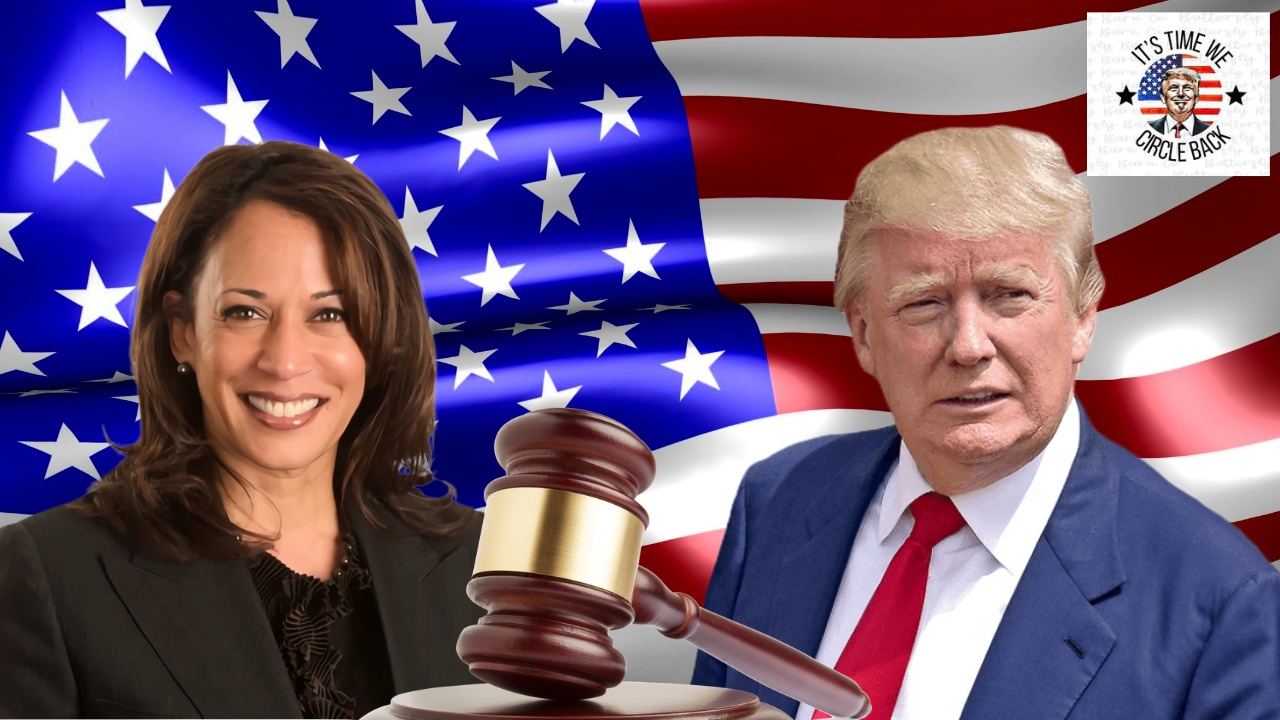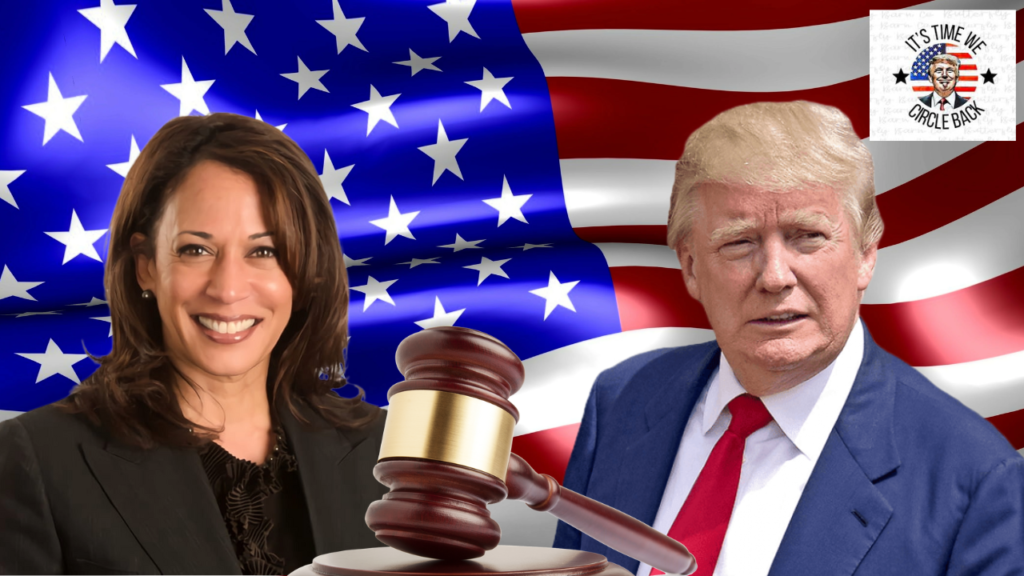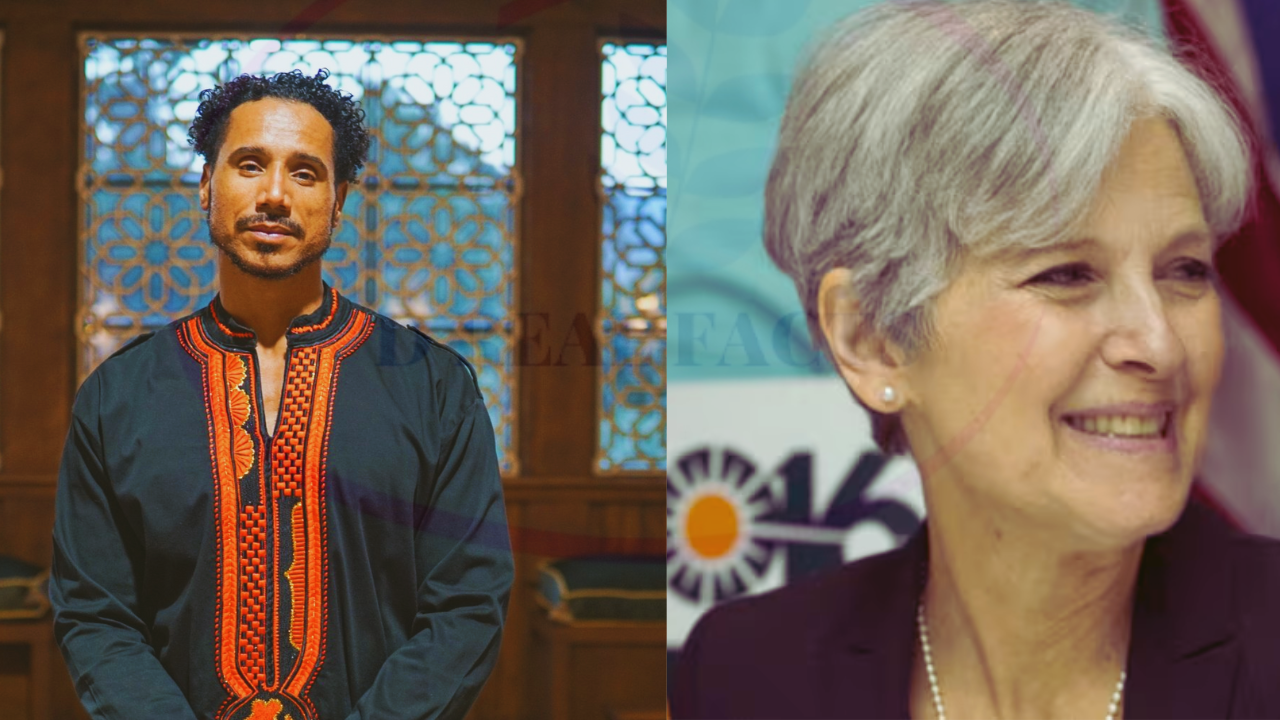

Kamala Harris vs. Donald Trump on the Issues That Matter
Americans will have to make a crucial choice in the 2024 presidential election between former President Donald Trump and Vice President Kamala Harris.
Donald Trump’s renewed ambition to make America great again and Harris’ call for togetherness provide two radically different views of the country.
Donald Trump rump is trying to paint Harris with the same brush that he used to paint President Joe Biden before the latter withdrew from the race, focusing mostly on immigration and inflation. While attempting to set herself apart from Biden on certain subjects, such as the economics, Harris has focused her campaign on reproductive concerns, such as access to abortion and maintaining democracy.
Examine the seven election choice guides below to find out more about the candidates’ positions on important policy issues:
Table of Contents
Foreign Policy

Guide for Making Decisions:
The planet is at risk right now. The worst European battle since World War II, which began with Russia’s invasion of Ukraine, has gone on for two and a half years, leaving the continent uneasy. The Middle East is now facing the possibility of a full-scale conflict involving Israel, Hezbollah, and Iran while also being consumed by Israel’s violent and politically explosive operation in Gaza. China keeps intensifying its military posture in the Pacific and raising the bar for relations with Taiwan.
With so much at risk and significant doubts about the survival of the long-standing American-led international system, Donald Trump and Kamala Harris offer diametrically opposed views on foreign policy.
It’s a difference that the contenders’ operating approaches perhaps make the most obvious. Despite being a member of the Biden administration for four years, Harris has just recently made her own foreign policy agenda public. However, experts anticipate that, similar to President Joe Biden, she will be a steady commander in chief who carefully considers her options, surrounds herself with knowledgeable people, and works to maintain American participation and partnerships.
Michael O’Hanlon, a senior scholar in foreign policy at the Brookings Institution, thinks that examining her decision-making approach overall, as well as her legal background and experience as attorney general, is the best course of action. She approaches things almost like a prosecutor. She appears to be cautious and practical, yet she also wants to go right to the point.
Experts say Donald Trump seems to be the exact opposite.
O’Hanlon states, “The first thing to say is that it will be difficult to find a straightforward explanation of his foreign policy because it was very personal and technical.” “There is no prevailing philosophy or even faith in the United States’ foreign policy heritage. His administration lacks a true understanding of how to use the knowledge and counsel of many individuals. Conversely, some of the advisors who have worked with him the most say that the former president often follows his own intuition and is influenced by his emotions and personal grievances; this approach may also cause him to abruptly take on drastically divergent stances.
Here is a deeper look at how the two contenders are probably going to address a few crucial areas.
Trump vs. Harris on Israel

It was perhaps Donald Trump’s most well-known foreign policy decision: The former president fulfilled a long-standing pledge in May 2018, about halfway through his term, to relocate the American embassy in Israel from Tel Aviv to the contentious city of Jerusalem. While this move was welcomed by the Israeli government and many Republicans, it also drew criticism from around the world and raised concerns about rising tensions in the region.
At the annual Leadership Summit of the Republican Jewish Coalition last autumn, Donald Trump said, “I love Israel.” “I’m honored to be Israel’s greatest friend ever.”
Donald Trump and right-wing Israeli Prime Minister Benjamin Netanyahu seem to have patched things up at a meeting in July, after a reported breach that arose when Netanyahu congratulated Biden on winning the 2020 election. In the June debate versus Biden, Trump said that the U.S. should let Israel “finish the job.” As president, he would probably stick closely with a Netanyahu government. Donald Trump has also underlined his unwavering support for the nation in its battle in Gaza.
In contrast, Harris met with Netanyahu recently and reiterated her “unwavering commitment to Israel” while also pressing for a deal on a ceasefire that would put an immediate halt to the fighting. Subsequently, she caused a stir with her strong remarks criticizing the suffering in Gaza, indicating a new public position that would be more receptive to the opinions of many younger Democrats in particular, who often consider Israel as an oppressor. However, Harris’s approach to Israel is most likely to be similar to that of Biden, who has remained steadfast in his support of the nation even as he has become more critical of Netanyahu and the Gaza conflict.
While speaking at the Democratic National Convention, Harris maintained the same tone, stating that she “will always stand up for Israel’s right to defend itself” and then bringing up the “devastating” and “heartbreaking” loss of innocent life in Gaza.
Massachusetts Democrat Rep. Seth Moulton told The Hill recently, “I think the Harris administration wants to continue that policy from the United States, standing by our ally, Israel, but also bringing an end to this conflict and ensuring that it doesn’t develop into a wider war in the Middle East that could draw in U.S. troops.”
Trump vs. Harris on Russia
On the surface, it seemed as if the two candidates’ positions on Russia policy couldn’t be more different.
Biden and his government have strongly condemned Russian aggression since February 2022, when Russia invaded Ukraine and sparked the biggest crisis in Europe since World War II. They have also rallied European allies and pushed for significant military and economic help for Ukraine. By this spring, the total amount of help provided by the United States to Ukraine was $175 billion, easily making it the greatest recipient.
Aid to Ukraine, by Supplemental Appropriations Bill
Five supplementary appropriations bills totaling $175 billion have been passed since Russia invaded Ukraine, of which about $107 billion has been used to directly fund the Ukrainian government.

Harris is anticipated to mostly stick with the same strategy if she wins in November. Harris met independently with Ukrainian President Volodymyr Zelenskyy and said in a speech last year that Russia had committed crimes against humanity. The vice president also underlined the significance of concepts like national sovereignty and territorial integrity at a June peace conference for Ukraine.
Conversely, Donald Trump has consistently shown his affection and respect for Russian President Vladimir Putin. Speaking on a radio program at the beginning of 2022, he called Putin’s invasion of Ukraine “genius” and “savvy.” Earlier this year, he stirred up even more controversy by implying that he would grant Putin permission to invade any NATO countries who weren’t fulfilling their budget commitments. The former president’s pro-Russian views seemed to be further cemented when JD Vance, who has said he doesn’t care what happens to Ukraine and spearheaded a push to terminate Congressional financing for the nation, was chosen by Donald Trump to be his running mate.
However, prior to his attempt to get Zelenskyy to unearth damaging information about Biden, which ultimately resulted in Trump’s first impeachment, Donald Trump also approved the sale of Javelin missiles to Ukraine early in his administration. Moreover, earlier this summer, he had a phone conversation with the president of Ukraine regarding a possible peace agreement. A member of Zelenskyy’s team reported that the conversation proceeded “exceedingly well.”
Trump vs. Harris on China
In 2018, the then-President Donald Trump started imposing a number of steep tariffs on Chinese imports in an attempt to support American companies that were being negatively impacted by China’s economic restrictions. Although the import levies did contribute to the growth of certain American industrial sectors, such as computer equipment, Donald Trump’s trade war also had a widespread negative impact on the economy.
Economists predicted that within a few years, the trade war had cost the US $300 billion and 300,000 jobs. With his recent pledge to levy a 60% tax on all Chinese imports, Donald Trump is now stepping up his game. Economists predict that this massive new tariff proposal will drive up prices and “could easily cause a recession.”
However, Donald Trump’s earlier China tariffs did turn out to be politically popular: Biden kept the levies and even increased some of them after first criticizing them, and it’s uncertain whether Harris would deviate from a trade strategy that is now widely supported by both Democrats and Republicans.
The Democratic contender has previously denounced China for violating human rights, pilfering American goods and intellectual property, and advocating for cooperation on matters such as climate change. Harris would probably carry on Biden’s strategy of balancing collaboration and rivalry with the US’s biggest economic adversary.
Trump vs. Harris on NATO and Western Allies
In June, Liana Fix, a fellow for Europe at the Council on Foreign Relations, said, “I think there’s nothing more important for Europe coming up this year than the U.S. elections.”
This is due to the stark differences in perspectives that the Republican and Democratic candidates have about NATO and the U.S.-Western partnerships. Donald Trump has been sowing doubts about America’s commitment to NATO for years now. He has threatened to stop supporting partners that don’t achieve expenditure targets and even hinted that the United States would leave the organization.
Although he has said that the threats are only a bargaining strategy, as long as Putin’s Russia continues to threaten Europe, they have raised serious concerns about the alliance’s survival and the stability of the world.
Like Biden, Harris is an ardent supporter of NATO and is likely to reaffirm America’s foreign obligations. In her address last week, she acknowledged as much, disclosing that she had a meeting with Zelenskyy just before to Putin’s invasion of Ukraine and asserting that she had “helped mobilize a global response” to support Ukraine in defending itself.
“And I will be a stronghold for Ukraine and our NATO allies as president,” she said.
Immigration and Border Policy
The government of Biden and Harris has attempted to portray itself as strong on immigration. As the attorney general of California, another border state, Harris has been noted for having “went after the transnational gangs, the drug cartels and human traffickers.”
Her campaign manager also hinted to CBS News that Harris would maintain the divisive executive order that limited asylum for illegal migrants crossing the southern border during periods of high volume.
During his tenure as president, Donald Trump enacted a number of stringent immigration laws, including a travel ban that targeted numerous nations with a majority of Muslims. If reelected in November, Donald Trump has pledged to “seal the border,” implement a significant deportation program, and bring back at least some of his prior policies.
Legislators tried to enact a bipartisan package earlier this year that had some rather strict provisions along with more funds and resources for border agents. Republicans opposed the plan, mostly as a result of Trump’s opposition. In contrast, Harris at the time backed the bipartisan measure and mentioned Trump’s attempts to defeat it during a speech in August in Arizona.
The Economy and Tax Policy
During his tenure in office, former President Donald Trump left a record of economic success that included significant tax cuts, industry deregulation, and trade disputes with other nations, chief among them being China.
As the Republican candidate, Trump is pledging to continue his first-term achievements. He has said that he is in favor of reducing the corporate income tax rate from 21% to 15%, supported an all-encompassing 10% tariff on imports, and pledged to undo many of the green energy requirements and subsidies that the Biden administration has supported.
In addition, he pledged to manage inflation and interest rates—two things the Fed oversees—but he did not specify how he would do this.
As the presumed Democratic standard-bearer, Vice President Kamala Harris will be bound by Joe Biden’s economic plan, but she has started to put out some of her own, focusing mostly on issues that are family-friendly, including paid leave and child care assistance.
She has generally supported more progressive economic policies throughout her time in the Senate, and if there are any openings at the Fed, she may choose to choose some more liberal candidates.
Abortion Policy

The first presidential election after Roe v. Wade was overturned in 2022 will take place in November, and the two contenders are waging campaigns that differ greatly on the subject.
While often praising states for their efforts to restrict access to abortion, Donald Trump has mostly refrained from making firm pronouncements about his prospective future policy. To put it mildly, he has been inconsistent on the matter in the past.
Before entering politics, in 1999, Trump declared himself to be “very pro-choice.” Though he has previously said that he would not sign a nationwide abortion ban if it were approved by Congress, he has more recently referred to himself as the “most pro-life president” in American history.
Contrarily, Harris has consistently backed the right to an abortion. In her capacity as a senator and a presidential contender in 2019, she presented a comprehensive proposal to safeguard access to abortion that mandated states get prior authorization from the Justice Department prior to enacting legislation pertaining to abortion.
She may also be the first vice president of the United States to visit an abortion facility while in office.
According to Mary Ziegler, a specialist on abortion law at UC Davis School of Law, a Harris presidency may see “more risk-taking” on the topic of abortion than the present one. As a devout Catholic, Biden has sometimes been characterized as uncomfortable when discussing Roe v. Wade and doesn’t always use the term “abortion” while discussing the case.
Education Policy
Harris is an advocate for increased K–12 spending, particularly for teacher pay increases and the dismantling of segregated education systems.
She is in favor of universal preschool as well. Regarding higher education, anticipate that she would expand on the efforts of the Biden administration to eliminate student loan debt and increase financing for historically Black schools and universities.
Although Project 2025, the Heritage Foundation’s 900-page transition playbook for Donald Trump, includes proposals to expand private school choice programs, roll back Title IX protections for LGBTQ students, and prosecute colleges that maintain affirmative action and DEI policies, Donald Trump favors abolishing the Education Department entirely.
He has also boasted of having close ties to the conservative policymakers behind Project 2025.
Trump supports withholding federal funding from any school or program that teaches “critical race theory, gender ideology, or other inappropriate racial, sexual, or political content onto our children” in regards to curriculum, while Harris is against book bans; her catchphrase, “we want to ban assault weapons, they want to ban books,” has become one of her go-to slogans.
Democracy

Notably, Donald Trump has promised to release supporters who have been charged and imprisoned for their involvement in the attack. Donald Trump stands by his actions during the Capitol riot on January 6, 2021, in which his supporters broke through windows, doors, and police lines to prevent the certification of the election he lost.
Beyond the incident involving the disturbance at the Capitol, Donald Trump has said that, should he be reelected, he would rule like a dictator, that he has “every right” to punish his political rivals, and that some provisions of the Constitution should be repealed.
He has, however, also presented himself as a champion of American ideals and denounced Biden as the “destroyer” of democracy, alleging that the president is using the legal system as a weapon against him. Following his attempted murder, he said that he “took a bullet for democracy.”
Now that Harris is leading the ticket, it seems like she decided to use a freedom-focused approach to address the democratic problem. Her campaign focuses mostly on the future and the liberties she claims Trump will violate if reelected.
The Supreme Court

The next president will have to deal with the fallout from a Supreme Court that is on the verge of becoming irrelevant, and he or she will probably get to choose two new justices. Currently serving as the most conservative and oldest members of the court are Justices Clarence Thomas, 75, and Samuel Alito, 73. Most experts on the Supreme Court predict that the next president will propose their successors.
Three of the present justices, Neil Gorsuch, Brett Kavanaugh, and Amy Coney Barrett, were all personally chosen by President Donald Trump. Since they are all 55 years of age or younger, it is quite likely that they will remain on the dais for the next 20 years or so.
And analysts forecast that Donald Trump will go on with his presidential agenda if reelected in 2024.
Prior to her elevation as vice president, Harris served as a senator on the Judiciary Committee. There, she gained widespread acclaim for her prosecutorial takedowns of the three judges that then-President Donald Trump had chosen during their confirmation hearings. Harris hasn’t yet mentioned the kinds of experiences she hopes to find in a justice in the event that a position opens up.




